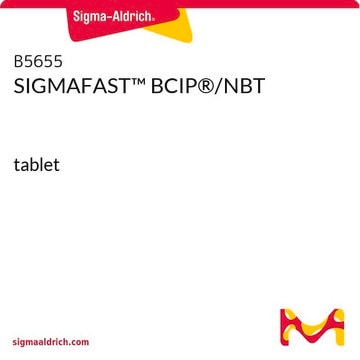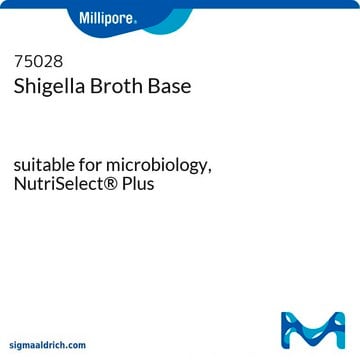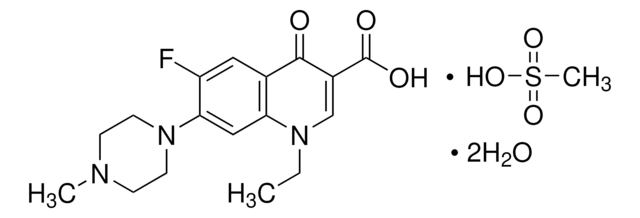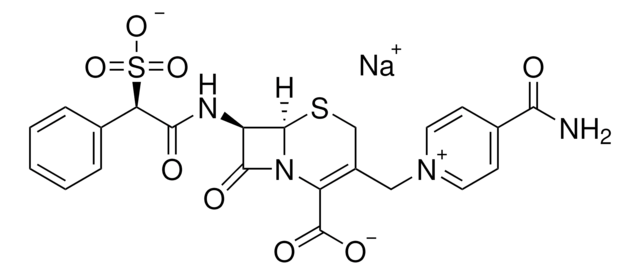74675
Novobiocin sodium salt
≥93% (HPLC)
Synonym(s):
Albamycin, Cathomycin, Novobiocin, Novobiocin, Monosodium Salt
About This Item
Recommended Products
Assay
≥93% (HPLC)
form
powder
optical activity
[α]20/D −48±3°, c = 1% in ethanol
color
white to faint beige
solubility
H2O: soluble
antibiotic activity spectrum
Gram-positive bacteria
Mode of action
DNA synthesis | interferes
enzyme | inhibits
storage temp.
2-8°C
SMILES string
[Na+].CO[C@@H]1[C@@H](OC(N)=O)[C@@H](O)[C@H](Oc2ccc3C([O-])=C(NC(=O)c4ccc(O)c(C\C=C(\C)C)c4)C(=O)Oc3c2C)OC1(C)C
InChI
1S/C31H35N2O11.Na/c1-14(2)7-8-16-13-17(9-11-19(16)34)27(37)33-21-22(35)18-10-12-20(15(3)24(18)42-28(21)38)41-29-23(36)25(43-30(32)39)26(40-6)31(4,5)44-29;/h7,9-13,23,25-26,29,34,36H,8H2,1-6H3,(H2,32,39)(H,33,37);/q-1;+1
InChI key
AXOUUAINTJNFRS-UHFFFAOYSA-N
Looking for similar products? Visit Product Comparison Guide
General description
Application
Biochem/physiol Actions
Antimicrobial spectrum: Gram-positive bacterial.
Packaging
Other Notes
Signal Word
Warning
Hazard Statements
Precautionary Statements
Hazard Classifications
Acute Tox. 4 Oral - Eye Irrit. 2 - Skin Sens. 1
Storage Class Code
11 - Combustible Solids
WGK
WGK 1
Flash Point(F)
Not applicable
Flash Point(C)
Not applicable
Personal Protective Equipment
Certificates of Analysis (COA)
Search for Certificates of Analysis (COA) by entering the products Lot/Batch Number. Lot and Batch Numbers can be found on a product’s label following the words ‘Lot’ or ‘Batch’.
Already Own This Product?
Find documentation for the products that you have recently purchased in the Document Library.
Customers Also Viewed
Our team of scientists has experience in all areas of research including Life Science, Material Science, Chemical Synthesis, Chromatography, Analytical and many others.
Contact Technical Service














